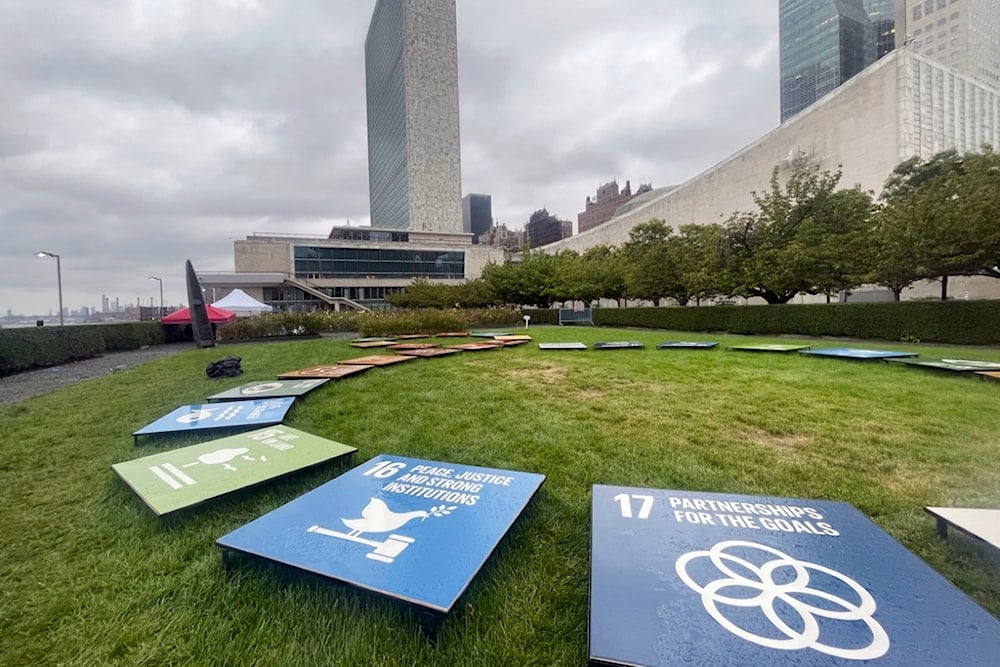UN development goal may shift as world lags on 2030 targets
UN ESCAP's Armida Salsiah Alisjahbana said the UN's Sustainable Development Goals may require shifting priorities, citing rising non-communicable diseases, as the world remains far behind on 2030 targets.
-

Tiles depicting the United Nations' Sustainable Development Goals are displayed outside the UN General Assembly Hall at the United Nations, Saturday, September 23, 2023. (AP)
The future of the United Nations Sustainable Development Goals (SDGs) may undergo adjustments, but the main challenges facing the world will persist, according to Armida Salsiah Alisjahbana, Executive Secretary of the UN Economic and Social Commission for Asia and the Pacific (ESCAP).
Speaking at the Eastern Economic Forum (EEF) in Vladivostok, she said, "I think the ongoing development challenges will continue, because that is a long-standing issue, like poverty, inequality, education issues, health issues, and so on. But some nature of challenges changes ... Then the priorities also need to shift a little bit."
She cited the growing prevalence of non-communicable diseases (NCDs) as an example of shifting priorities. "It used to be only communicable diseases. Now, as countries develop [and become] more prosperous and well-off, many countries now are facing non-communicable diseases because of lifestyle. So there is a change," she noted.
The World Health Organization estimates that NCDs such as heart disease, cancer, and diabetes are now responsible for nearly 75% of global deaths, with the majority occurring in low- and middle-income countries.
Alisjahbana stressed that these new realities should be seen not only as obstacles but also as chances for collaboration. "So the majority [of challenges] will remain, but new development challenges offer also new opportunities. Do not forget, [there are] not only challenges, issues, problems. Look also at the opportunities. This is where countries should work together," she said.
SDGs falling short
Her comments convey the July warning of UN Secretary-General Antonio Guterres, who said the world is falling far behind on the 2030 Agenda, with only 35% of the SDG targets currently on track, nearly half progressing too slowly, and 18% regressing.
ESCAP's own 2025 report highlights the gap in Asia Pacific: out of 117 targets with sufficient data, only 16 are expected to be achieved, underscoring the urgency of recalibrating priorities.
The SDGs, adopted by all UN member states in 2015, laid out 17 objectives ranging from eradicating extreme poverty and hunger to advancing gender equality, climate action, and inclusive economic growth. With just five years left until the 2030 deadline, policymakers face widening gaps in financing and implementation.
The 10th edition of the EEF, held from September 3 to 6 in Russia's Far Eastern city of Vladivostok, provided a stage for these discussions. Under the theme "The Far East: Cooperation for Peace and Prosperity," the forum stressed regional investment and development opportunities even as global attention remains fixed on whether countries can meet, or at least adjust, their SDG commitments in time.
Read more: 1.1 billion people, 500 million+ children live in acute poverty: UNDP

 3 Min Read
3 Min Read










